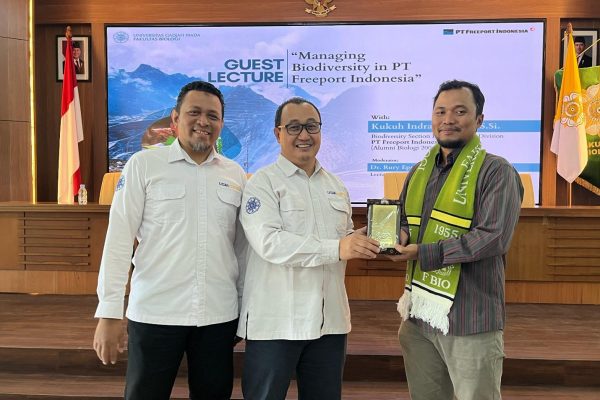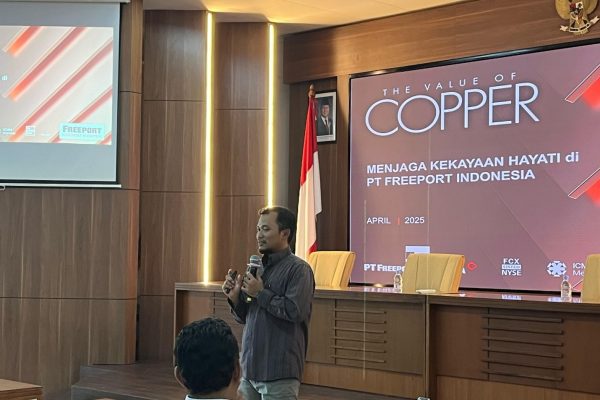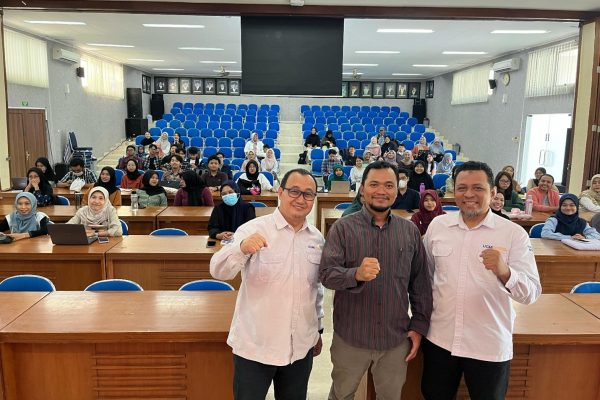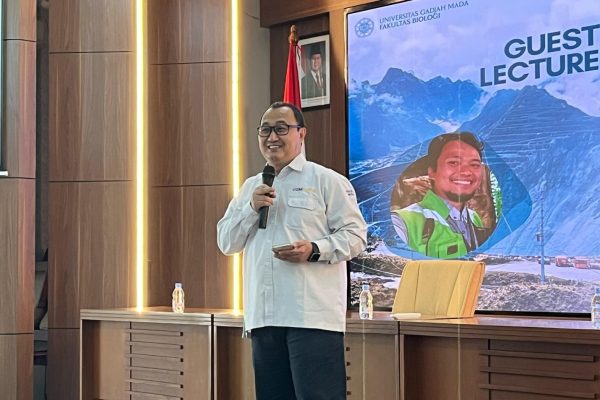Yogyakarta, 28 April 2025 — The Faculty of Biology, Universitas Gadjah Mada (UGM), hosted a guest lecture titled “Managing Biodiversity at PT Freeport Indonesia”, featuring speaker Kukuh Indra Kusuma, S.Si., from the Biodiversity Section, Environmental Division of PT Freeport Indonesia. Kukuh, a 2006 graduate of the Faculty of Biology UGM, is currently active in environmental management at one of Indonesia’s largest mining companies.
Held at the Tropical Biology Auditorium, the event was attended by students, lecturers, and members of the Faculty of Biology UGM academic community. Dr. Eko Agus Suyono, M.App.Sc., Vice Dean for Research, Community Service, Cooperation, and Alumni Affairs, officially opened the lecture. In his remarks, Dr. Eko expressed appreciation for Mr. Kukuh’s return and emphasized the importance of such moments in inspiring students and alumni to explore career opportunities in the mining sector.
Moderated by Dr. Rury Eprilurahman, the session began with an introduction to Mr. Kukuh’s active involvement during his student years and his achievements in various international research competitions.
In his presentation, Mr. Kukuh outlined the history and operational scope of PT Freeport Indonesia, which spans across Grasberg, Underground Mine, Tembagapura, to Amamapare Port. He highlighted the environmental management challenges posed by such an extensive and complex mining area, as well as the various initiatives undertaken by the company to safeguard biodiversity.
A range of environmental rehabilitation and conservation programs have been implemented, including land reclamation and revegetation using native species such as matoa and angsana, tailings (SIRSAT) management, and mangrove restoration efforts targeting up to 500 hectares of replanting annually. PT Freeport has also developed integrated post-mining research facilities such as cattle farming, agricultural land, hydroponics, aquaculture, and integrated farming systems.
In terms of biodiversity conservation, the company conducts species monitoring, ecosystem succession assessments, and has established conservation facilities such as botanical gardens and ecosystem dioramas. These initiatives are carried out in collaboration with the Ministry of Environment and Forestry (KLHK) through the Natural Resources Conservation Agency (BKSDA).
The lecture concluded with an interactive discussion session that was met with great enthusiasm from the students. The event is expected to serve as a catalyst for innovation and academic engagement in ecosystem conservation research (SDG 4 and 15), while also promoting cross-sectoral collaboration toward sustainable development (SDG 17).




